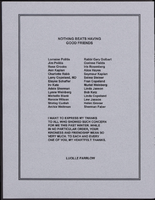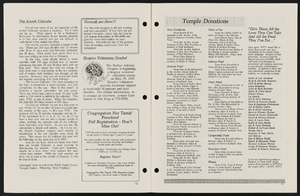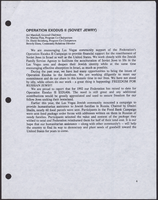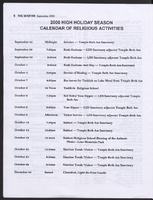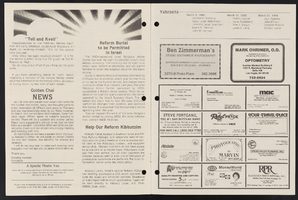Search the Special Collections and Archives Portal
Search Results
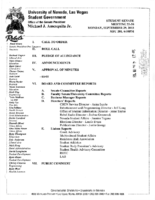
Meeting minutes for Consolidated Student Senate, University of Nevada, Las Vegas, September 29, 2003
Date
Archival Collection
Description
Text
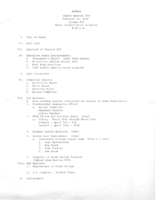
Meeting minutes for Consolidated Student Senate, University of Nevada, Las Vegas, February 28, 1978
Date
Archival Collection
Description
Text
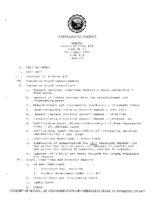
Meeting minutes for Consolidated Student Senate, University of Nevada, Las Vegas, August 09, 1983
Date
Archival Collection
Description
Text
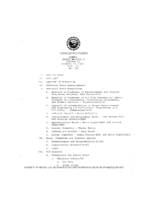
Meeting minutes for Consolidated Student Senate, University of Nevada, Las Vegas, December 13, 1983
Date
Archival Collection
Description
Text

Lynnette Sawyer oral history interview: transcript
Date
Archival Collection
Description
Oral history interview with Lynnette Sawyer conducted by Nathalie Martinez on January 03, 2019 for the Latinx Voices of Southern Nevada Oral History Project. Barbara Tabach and Laurents Bañuelos-Benitez also participate in the questioning. Lynnette Sawyer identifies as a Puerto Rican woman born and raised in Spanish Harlem in New York. Her ancestry extends from Spain to Africa and has helped her identity, as she became an educator and museum curator. She describes her life in New York and her journey to Las Vegas. As the founder of the Hispanic Museum of Nevada, she wanted to create a space that would teach young Latinos about their history and heritage.
Text

